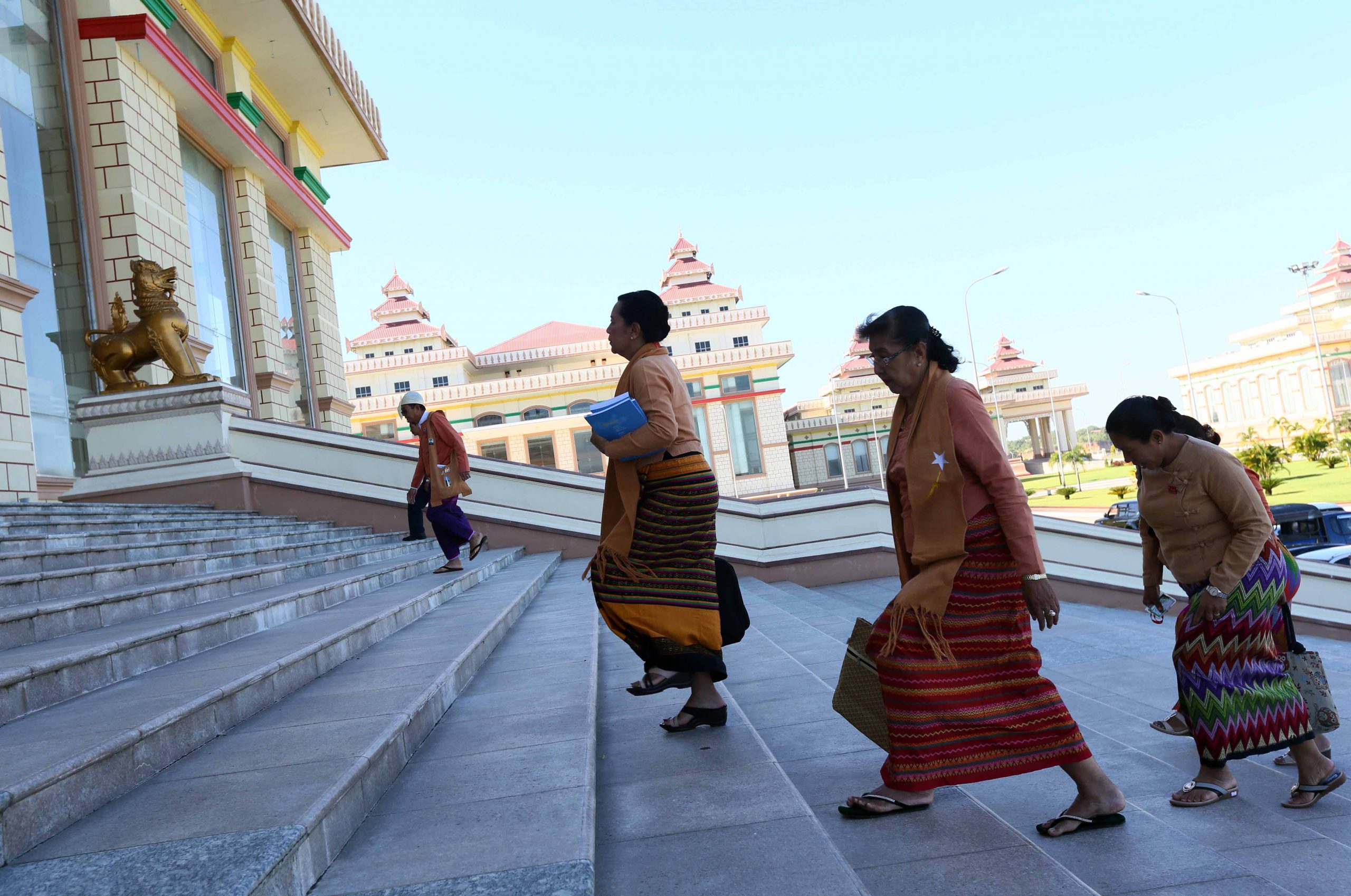The Burmese government has dismissed complaints from Arakanese politicians regarding the process for issuing citizenship rights to Rohingya Muslims in Burma’s far west.
Lower House MP Khin Saw Wai of the Arakan National Party (ANP) had previously filed a written complaint, along with a petition with over 1,000 signatures from locals, to the house speaker Shwe Mann. The document alleged that officials scrutinising the ‘Bengali’ [Rohingya] for citizenship in her township are following regulations provided in the defunct 1948 Union Citizenship Act instead of the current 1982 Citizenship Law.
The 1982 law lists the ethnicities eligible for citizenship. ‘Rohingya’ is not one of them. The 1948 Union Citizenship Act ensured that “Any person descended from ancestors who for two generations at least have all made any of the territories included within the Union their permanent home and whose parents and himself were born in any of such territories shall be deemed to be a citizen of the Union.”
The citizenship verification process begun in 2013 and has thus far been limited to Myebon Township in Arakan State. Stateless Rohingya who have applied for citizenship in Myebon have been asked to produce documents proving a local lineage predating 1948. Hundreds have been successful in their bids thus far. The process has required that applicants refrain from stating their ethnicity as ‘Rohingya’ – in keeping with the 1982 law. Applicants were instead required to state their ethnicity as ‘Bengali’, implying Bangladeshi origin. The 1982 law does not include ‘Bengali’ among the list of 135 ‘National Races’ of Burma.
Speaking to a session of the Lower House on Tuesday, Deputy Minister for Immigration and Population Win Myint said that the citizenship verification process has relied on current laws. The former military officer went on to caution the petitioning MPs.
“Complaints and opinions based on racial and religious backgrounds and the concept of majority and minority are one-sided and far from reality, often leading to disastrous consequences,” the deputy minister said, according to state media.
Win Myint did not take any questions from MPs on Tuesday. ANP representatives spoke of their frustrations at the close of the day’s proceedings.
“The minister avoided answering whether the 1948 law was being used or not, or if yes, why. And we weren’t allowed to further question the minister so that was also a challenge. It is our duty as a representative of the people to ensure transparency in these issues,” said Khin Saw Wai who represents Arakan State’s Rathedaung Township, home to a large Rohingya population.
“The populace of the Western Gate [Arakan State] is hugely concerned about this. And this is not only an issue for us Arakanese people but this is a concern for the whole country and for that I will be making arrangements to demand an answer by addressing this to fellow MPs and members of the public.”
Ba Shein, who represents Kyaukphyu Township for the ANP, said his constituents insist that the defunct 1948 law is being used.
“U Win Myint gave a one sided clarification but we weren’t allowed to further discuss what he said. I assume the deputy minister was merely here to read out the clarification prepared by local officials per instruction by the minister.
“We have a lot to discuss – locals are crying foul claiming that the officials are using regulations from the defunct law and we should be given a chance to debate on the issue, about what’s right or wrong.”
[related]
The omission of the term ‘Rohingya’ from the list of ‘National Races’ included in the 1982 Citizenship Law is a major legal block to addressing the current statelessness of up to 1.1 million Rohingya in Burma – 800,000 of whom live in Arakan State. Over 100,000 Rohingya are confined to squalid displacement camps, after losing their homes during race riots in 2012.
The requirement for citizenship applicants to provide documents proving ancestral ties to the area is extremely difficult to fulfil for most, as few documents were issued to residents of the area by the British colonial administration. The United Nations has repeatedly urged the Burmese government to quicken the citizenship verification process, which is set to end in October 2016.
Visiting a displaced persons camp in Myebon in January, the UN’s Special Rapporteur on the Situation of Human Rights in Burma, Yanghee Lee, noted what she saw as an unsubstantial effect of the programmes. She said that the living standards among Rohingya residing in camps have not improved as new citizens remain subject to onerous mobility restrictions.
“They remain inside the camp with minimum food rations, limited access to health care and to other essential services,” Yanghee Lee said in January. “The despair that I saw in the eyes of the people in the Myebon IDP camp was heartbreaking.”



